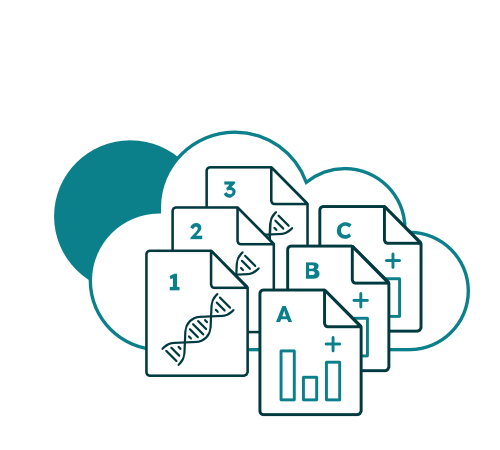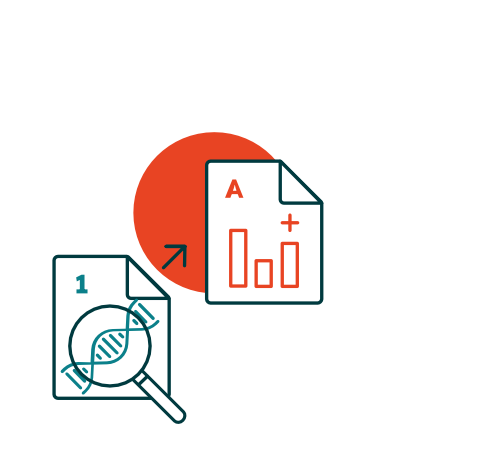We care about genomic data.
We make it usable.
We protect it.
As a secure national omics data infrastructure, GHGA enables the use of human omics data in research, while ensuring data security and preventing misuse. By bridging the gap between research and healthcare, we drive the development of new therapies and diagnostics.
Making genomic research easier.
With the distributed generation of research data, researchers face challenges in finding and securely sharing data. We aim to bring this data together, making it easier to access, find, and use. We are providing secure processing environments and advanced analysis tools, empowering researchers to create new cohorts, validate findings, and leverage novel big data techniques even more efficiently. This will fuel biological discovery and accelerate the translation of research into clinical practice, ultimately benefiting patients and advancing genomic medicine.
Ethicolegal governance of genomic data.
Human genomic data is sensitive data. GHGA implements several layers of protection to ensure the data is safe as well as useable. Through the combination of secure software infrastructure and an ethical-legal framework, we guarantee GDPR compliance and protect the privacy of citizens and patients. GHGA establishes transparent, democratic and secure access to genomic data for research purposes, driving meaningful research outcomes with lasting benefits for global health.
Enhancing international collaboration and visibility.
As part of the European Genomic Data Infrastructure (GDI) and the Federated European Genome-Phenome Archive (FEGA), GHGA ensures that German genomic data is accessible and usable beyond national borders. Through international initiatives such as the Global Alliance for Genomics and Health (GA4GH), we enable German researchers to shape future global standards for data sharing, taking on leading roles in the international genomics landscape.
Advancing the exchange between healthcare and research.
Working closely with both the research and healthcare communities, we aim to facilitate the exchange of genomic data and insights - bridging the gap between communities. As part of this effort, we are contributing to the genomDE Initiative and Model Project — which is evaluating the use of genome sequencing for cancer and rare disease patients — to make these data available for research. This will support the integration of genomic findings into clinical practice and accelerate the development of personalised therapies.
Strengthening national research data infrastucture
GHGA is part of the National Research Data Infrastructure (NFDI), which systematically indexes and connects research data across disciplines. By making previously fragmented data more accessible and reusable, the NFDI strengthens research, fosters collaboration, and supports innovation. While we focus on making human omics data FAIR (Findable, Accessible, Interoperable, and Reusable) and ensuring its secure use in research, we also collaborate with other (biomedical) NFDI consortia to establish shared standards and tools. This ensures interoperability across research domains, enabling responsible data sharing and driving progress in genomic medicine and beyond.

Restricted Secure Processing Environment (rSPE) for internal use
Community Secure Processing Environment (cSPE) for external use

Standardised data analysis
Data visualisation
Statistics and aggregation
Integration of multiple omics modalities and connecting omics data to phenotypic data